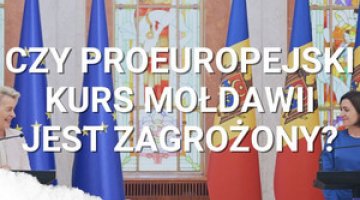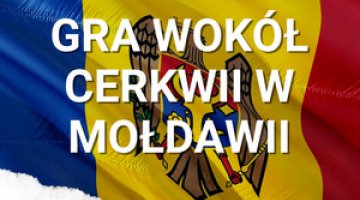Moldova: A new prime minister, the old order
On 30th July the Moldovan parliament passed a motion of confidence for the new government led by Valeriu Strelet. The motion of confidence was supported by all members of parliament from the Alliance for European Integration (AIE) which was established a week earlier and which has a total of 52 seats in the 101-seat parliament. The AIE is composed of three parties: the Liberal Democratic Party of Moldova (PLDM) and the Democratic Party of Moldova (PDM) – both of these parties have been in power without interruption since 2009 – and the Liberal Party (PL) led by Mihai Ghimpu which has returned to power after over two years in opposition. The new government was formed following the resignation of Prime Minister Chiril Gaburici on 12th June. Gaburici took office on 18th February 2015 after lengthy negotiations between the parties which had begun following the parliamentary election on 30th November 2014. The main tasks which the new government will have to undertake will be: to take control of the deteriorating economic situation, to regain foreign funding which was lost due to a banking scandal, and to revive the coalition parties’ popularity.
The new coalition, in contrast to the previous minority coalition, has a majority in parliament and therefore does not need support from the Communists. It should however be expected that, due to conflicts between the leaders of the three parties, the coalition will be unstable – a serious political crisis is possible in March 2016, when the coalition holds talks about its candidate for president.
The implications of the choice of the new prime minister
Strelet has for many years been a close aide of Vlad Filat, the PLDM leader and Moldovan prime minister (2009–2013). Besides being a politician, Strelet is also a millionaire businessman and one of the richest members of the Moldovan parliament. The fact that he has been appointed head of the government sanctions Moldova’s political system. It began its formation in 2009 and real power is in the hands of an oligarch who controls the PDM, Vlad Plahotniuc, and Vlad Filat. Even though Strelet, unlike his predecessor Chiril Gaburici, has a certain political base and clout in the party, as prime minister he will definitely be subordinate to Filat. Without question he will not take any measures which could threaten the interests of the present political and business system since he is a part of it himself and a beneficiary. In this regard it should not be expected that the new government will take any action in order to implement key structural reforms which would lead to a de-politicisation of state institutions (above all the judicial system) or reforms resulting from the Moldova-EU association agreement which came into force in September 2014. Nor will it successfully conduct investigations into the banking scandal and punish those responsible for it. In November 2014 approximately US$ 1 billion (which accounts for 15% of the country’s GDP) was taken from the Moldovan banking system; it is likely that high-ranking coalition politicians were implicated in the scandal.
The balance of power in the coalition
The ministries in the new government have been assigned according to the deal stated in the new coalition agreement. Neither the balance of power nor the persons at the helm of key ministries have changed much. The PLDM has retained control over the Ministry of Internal Affairs, the Ministry of Foreign Affairs, the Ministry of Finance, the Ministry of Agriculture and two other ministries (i.e. six ministries), the PDM has placed its members at the helm of the Ministry of Economy, the Ministry of Justice, the Ministry of Regional Development and three other ministries (six ministries in total) and the new party in the coalition, the Liberal Party, has been granted the Ministry of Defence, the Ministry of Education, the Ministry of Transport and the Ministry of the Environment (four ministries). Despite the fact that it was not stated in the coalition agreement which of the parties would appoint the position of prosecutor general or the head of the National Bank of Moldova, the decision regarding these appointments will almost certainly be made by Vlad Plahotniuc.
Financial challenges…
The most important challenge that the new government faces is to regain the financial support from its foreign partners which has been lost during the last two months. At the beginning of June the International Monetary Fund announced that it was suspending negotiations on a new loan programme for Moldova (the previous programme expired in 2013) and in mid-June the World Bank decided to withhold the payment of a loan worth US$ 45 million. On 5th July the EU decided to freeze its financial aid programmes for Moldova worth 40-50 million euros. All these decisions had the same motivation: the lack of effective measures taken by the government in Chisinau in order to fight the non-transparency of the banking system (as evidenced by the embezzlement of US$ 1 billion from the banking system). In addition to this, the IMF announced that in order to launch a new loan programme, Moldova would have to close down the three banks which were implicated in the financial scandal; the ruling coalition is reluctant to do this. Chisinau has been deprived of a total of US$ 230 million as a result of financial support being put on ice; this represents over 10% of planned spending for this year in the Moldovan budget.
Problems with external funding are particularly important in the context of the country’s deteriorating economic condition, which the new government will also have to deal with. Officially, the Moldovan economy grew by 4.8% in the first quarter of 2015. This was, though, only a ‘statistical growth’ resulting from a dramatic fall in the value of the Moldovan currency. In the last 12 months it lost nearly half of its value against the US dollar. Exports in the first half of 2015 fell by 15.3%, imports by 22.1% and the level of investments by 20.6% in the first quarter. Analogously, remittances coming from Moldovan economic migrants, who are a pillar of Moldovan economy, also fell (by 23.7%). This was caused both by Russia’s tougher policy towards Moldovan immigrants (over 60% of all Moldovan financial immigrants found jobs in Russia) and a massive fall in the Russian ruble’s exchange rate.
… and social challenges
Mounting social discontent will be also a challenge for Strelet’s government. It is visible in demonstrations which gather together thousands of protesters. These have been organised since April this year by the pro-European ‘Dignity and Truth’ Civic Platform. The catalyst for the protests was the revelation of the banking scandal which led to a deterioration of the already bad condition of the Moldovan currency, the leu, and to the National Bank of Moldova having to unblock substantial funds from the foreign-exchange reserves. Social discontent has been further stoked by the decision made by the National Energy Regulatory Agency of Moldova on 17th July to increase the gas price (by 15.4%) and the electricity price (by 30-37%) and the fact that in the second half of July the coalition rejected the candidacy of the then education minister Maia Sandu (PLDM) for the position of prime minister. Sandu enjoys large popularity in Moldovan society. She is above all known for her successes in implementing the education reform and her open criticism of the government. Sandu’s candidacy for the position of prime minister was rejected because she demanded that the prosecutor general and the president of the National Bank of Moldova be replaced as she claimed they were accomplices in the banking scandal.
The spectre of the presidential crisis
The coalition agreement contains a provision which declares the willingness to hold a referendum this autumn on the amendment concerning the way in which the head of state is elected. At present the new coalition does not have the required three fifths majority of seat in parliament (61) in order to vote through its candidate in the presidential election in parliament, which is scheduled for March 2016. The proposed amendment conserves the procedure of electing the president by a vote in parliament but it lowers the number of votes required for this. Under the amendment the president would be elected following three attempts of voting, with respectively 61 votes, 57 votes and finally a regular majority of 51 votes required in the last attempt. At present it is difficult to foresee the results of the planned referendum. If attempts to amend the constitution fail, it is quite likely that a grave political crisis will ensue in March 2016 since it will be almost impossible to obtain the majority in parliament required to elect a president.





